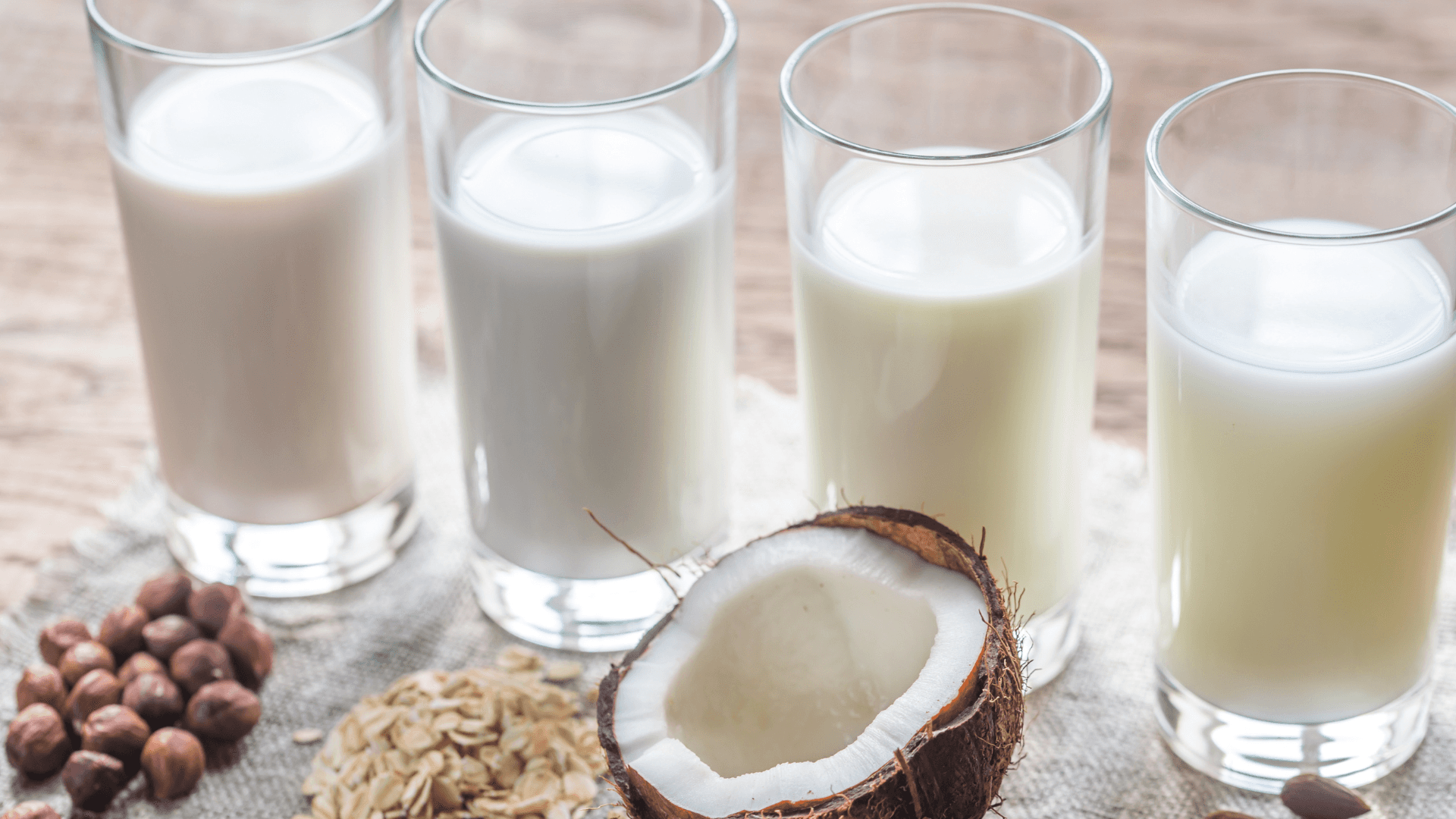Digestive health: how probiotics and prebiotics can transform your well-being
Digestive health: how probiotics and prebiotics can transform your well-being
Digestive health: how probiotics and prebiotics can transform your well-being
Mar 19, 2024
Mar 19, 2024
Mar 19, 2024

Discover the power of probiotics and prebiotics for digestive health. Learn how they work together to improve digestion and strengthen the immune system.
Discover the power of probiotics and prebiotics for digestive health. Learn how they work together to improve digestion and strengthen the immune system.
Discover the power of probiotics and prebiotics for digestive health. Learn how they work together to improve digestion and strengthen the immune system.
The digestive tract plays a crucial role beyond food digestion, hosting a complex bacterial ecosystem that profoundly influences our health. In this context, probiotics and prebiotics become fundamental for the balance and functioning of the digestive system, nourishing and regulating our intestinal microbiota but significantly impacting our immunity and overall well-being. This article explores the importance of probiotics and prebiotics and how their harmonious interaction promotes healthy digestion and strengthens the body's defenses.
Understanding digestive health and the gut microbiota
The gut microbiota is essential for our health, aiding digestion and influencing various aspects of our metabolism and well-being. One of the roles of the microbiota is to assist in the digestion of fibers. It produces short-chain fatty acids such as propionate and butyrate, which regulate blood glucose levels, promote a feeling of fullness, and can even reduce insulin resistance and diet-induced obesity. Additionally, gut microorganisms are involved in the metabolism of bile acids, essential for fat digestion. They also play a role in cholesterol regulation and appetite control.
The intestinal tract houses about 80% of the body's immune cells, responsible for producing vitamins and hormones and helping to control inflammation and metabolism. Imbalances in the gut microbiota have been linked to various mental illnesses and mood disorders, highlighting the close connection between gut and mental health. Therefore, to promote a healthy gut microbiota and ensure the full functioning of various systems, it is essential to adopt beneficial habits, such as:
Consuming fruits and vegetables, as their dietary fibers help regulate bowel movements and serve as food for beneficial bacteria.
Consuming fermented foods like yogurt, kimchi, and kombucha introduces beneficial bacteria into the gut and produces essential vitamins.
Reducing stress.
Maintaining regular meal times.
Avoiding prolonged use of certain medications, such as antibiotics, and those that decrease gastric secretion (omeprazole, lansoprazole, pantoprazole, etc.).
Considering the use of probiotic and prebiotic supplements.
Combining probiotics and prebiotics
Probiotics are living microorganisms found in fermented foods like yogurt, kefir, sauerkraut, and kombucha. They restore and maintain the balance of the gut microbiota, improving digestion and protecting against pathogens and diseases, thereby strengthening the immune system.
Prebiotics are dietary fibers found in foods such as garlic, onions, asparagus, and bananas. Although not digestible by the human body, they serve as fodder for probiotics in the gut, encouraging the growth of beneficial bacteria that improve gut health, nutrient absorption, and the production of vital vitamins.
When combined, probiotics and prebiotics form synbiotics, often sold as fermented dairy drinks, tablets, and supplements. They act directly on the digestive system through their fibers, vitamins, and minerals, helping to re-establish the balance of the gut microbiota and recover the immune system.
__
In summary, probiotics and prebiotics are essential components for optimal digestive health. Together, they promote a healthy balance of the gut microbiota, improving digestion, strengthening the immune system, and supporting overall gut health.
The digestive tract plays a crucial role beyond food digestion, hosting a complex bacterial ecosystem that profoundly influences our health. In this context, probiotics and prebiotics become fundamental for the balance and functioning of the digestive system, nourishing and regulating our intestinal microbiota but significantly impacting our immunity and overall well-being. This article explores the importance of probiotics and prebiotics and how their harmonious interaction promotes healthy digestion and strengthens the body's defenses.
Understanding digestive health and the gut microbiota
The gut microbiota is essential for our health, aiding digestion and influencing various aspects of our metabolism and well-being. One of the roles of the microbiota is to assist in the digestion of fibers. It produces short-chain fatty acids such as propionate and butyrate, which regulate blood glucose levels, promote a feeling of fullness, and can even reduce insulin resistance and diet-induced obesity. Additionally, gut microorganisms are involved in the metabolism of bile acids, essential for fat digestion. They also play a role in cholesterol regulation and appetite control.
The intestinal tract houses about 80% of the body's immune cells, responsible for producing vitamins and hormones and helping to control inflammation and metabolism. Imbalances in the gut microbiota have been linked to various mental illnesses and mood disorders, highlighting the close connection between gut and mental health. Therefore, to promote a healthy gut microbiota and ensure the full functioning of various systems, it is essential to adopt beneficial habits, such as:
Consuming fruits and vegetables, as their dietary fibers help regulate bowel movements and serve as food for beneficial bacteria.
Consuming fermented foods like yogurt, kimchi, and kombucha introduces beneficial bacteria into the gut and produces essential vitamins.
Reducing stress.
Maintaining regular meal times.
Avoiding prolonged use of certain medications, such as antibiotics, and those that decrease gastric secretion (omeprazole, lansoprazole, pantoprazole, etc.).
Considering the use of probiotic and prebiotic supplements.
Combining probiotics and prebiotics
Probiotics are living microorganisms found in fermented foods like yogurt, kefir, sauerkraut, and kombucha. They restore and maintain the balance of the gut microbiota, improving digestion and protecting against pathogens and diseases, thereby strengthening the immune system.
Prebiotics are dietary fibers found in foods such as garlic, onions, asparagus, and bananas. Although not digestible by the human body, they serve as fodder for probiotics in the gut, encouraging the growth of beneficial bacteria that improve gut health, nutrient absorption, and the production of vital vitamins.
When combined, probiotics and prebiotics form synbiotics, often sold as fermented dairy drinks, tablets, and supplements. They act directly on the digestive system through their fibers, vitamins, and minerals, helping to re-establish the balance of the gut microbiota and recover the immune system.
__
In summary, probiotics and prebiotics are essential components for optimal digestive health. Together, they promote a healthy balance of the gut microbiota, improving digestion, strengthening the immune system, and supporting overall gut health.
The digestive tract plays a crucial role beyond food digestion, hosting a complex bacterial ecosystem that profoundly influences our health. In this context, probiotics and prebiotics become fundamental for the balance and functioning of the digestive system, nourishing and regulating our intestinal microbiota but significantly impacting our immunity and overall well-being. This article explores the importance of probiotics and prebiotics and how their harmonious interaction promotes healthy digestion and strengthens the body's defenses.
Understanding digestive health and the gut microbiota
The gut microbiota is essential for our health, aiding digestion and influencing various aspects of our metabolism and well-being. One of the roles of the microbiota is to assist in the digestion of fibers. It produces short-chain fatty acids such as propionate and butyrate, which regulate blood glucose levels, promote a feeling of fullness, and can even reduce insulin resistance and diet-induced obesity. Additionally, gut microorganisms are involved in the metabolism of bile acids, essential for fat digestion. They also play a role in cholesterol regulation and appetite control.
The intestinal tract houses about 80% of the body's immune cells, responsible for producing vitamins and hormones and helping to control inflammation and metabolism. Imbalances in the gut microbiota have been linked to various mental illnesses and mood disorders, highlighting the close connection between gut and mental health. Therefore, to promote a healthy gut microbiota and ensure the full functioning of various systems, it is essential to adopt beneficial habits, such as:
Consuming fruits and vegetables, as their dietary fibers help regulate bowel movements and serve as food for beneficial bacteria.
Consuming fermented foods like yogurt, kimchi, and kombucha introduces beneficial bacteria into the gut and produces essential vitamins.
Reducing stress.
Maintaining regular meal times.
Avoiding prolonged use of certain medications, such as antibiotics, and those that decrease gastric secretion (omeprazole, lansoprazole, pantoprazole, etc.).
Considering the use of probiotic and prebiotic supplements.
Combining probiotics and prebiotics
Probiotics are living microorganisms found in fermented foods like yogurt, kefir, sauerkraut, and kombucha. They restore and maintain the balance of the gut microbiota, improving digestion and protecting against pathogens and diseases, thereby strengthening the immune system.
Prebiotics are dietary fibers found in foods such as garlic, onions, asparagus, and bananas. Although not digestible by the human body, they serve as fodder for probiotics in the gut, encouraging the growth of beneficial bacteria that improve gut health, nutrient absorption, and the production of vital vitamins.
When combined, probiotics and prebiotics form synbiotics, often sold as fermented dairy drinks, tablets, and supplements. They act directly on the digestive system through their fibers, vitamins, and minerals, helping to re-establish the balance of the gut microbiota and recover the immune system.
__
In summary, probiotics and prebiotics are essential components for optimal digestive health. Together, they promote a healthy balance of the gut microbiota, improving digestion, strengthening the immune system, and supporting overall gut health.















